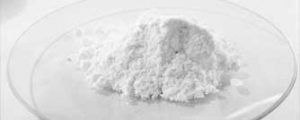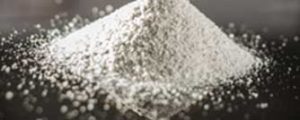Soda Ash
Characteristics: Soda ash, or anhydrous sodium carbonate, is a white powdered or
granular alkaline material, produced in two grades that differ in
granulation and in bulk density. It is capable of absorbing
atmospheric moisture and carbon dioxide slowly to form sodium
sesquicarbonate and various hydrates.
We Royal Global Energy proud to cite that for complete self-sufficiency in supplying raw material in the glass industry, in addition to mentioned items above, supplies materials as below to be consumed in the glass production process and offers the excess to the local market:
- Silica Sand
- Dolomite
- Liquid Nitrogen
- Oxygen
- Hydrogen
BAKING SODA (SODIUM BICARBONATE)

Sodium Bicarbonate is also known as Baking Soda (NaHCO3) is one of the salts of Carbonic Acid. Sodium Bicarbonate is commonly produced through the Solvay method, in which from the reaction between Sodium Chloride, Ammonia and Carbon Dioxide in water, Sodium Bicarbonate appears in sediment shape. After filtration and dehydration, the final product is packed in the shape of white powder or crystalline substance.
Features
- White powder, with no smell and a bit of alkaline taste.
- Has alkaline property but it could have an Amphoteric role in water.
- Absorbs moister and smell
Applications
- Food industries: producing soda, cake, cookies, industrial bread and etc.
- Cosmetic and hygienic industries: producing toothpaste, home detergents as abrasive and soft types.
- Texture industries: for processing wool and silk strings
- Livestock and Poultry industries: as a supplement in their food
- Firefighting Industries: in powders and fire extinguishers
- Polymer industries act as catalysts and treatment agents.
Production Unit
This unit was set up in 2019 with unwavering efforts of managers and experts of the plant located. In our factory, powder baking soda is being produced in accordance with relevant standards in 25 kg packages and offered to local and global m
SODIUM CARBONATE

Sodium Carbonate with the chemical formula of Na2CO3, also known as Soda Salt, Soda Ash, Soda Crystals, and Washing Soda, is one of the most important and most useful industrial chemicals which has a vast variety of applications.
Dehydrated Sodium Carbonate with the commercial name of “Soda Ash”, is usually produced by the Solvay method on an industrial scale. In this method, Sodium Carbonate is produced from Limestone (Calcium Carbonate), Ammonia and Sodium Chloride. Other production methods are known as Lelanc and Hou Process.
This substance is manufactured in two types including Light Sodium Carbonate and Heavy Sodium Carbonate which can be used in the production of Glass and Glassware, Chemicals (Baking Soda, Sodium Silicate, etc.), Water Treatment, Heavy Metals Extraction, and many other uses.
50% of all the production of this substance is used in glass and glassware manufacturing, 18% for chemicals, 10% for producing soap and detergents, and the rest are used in other industries.
Difference between Light and Heavy Sodium Carbonate
The difference between these two types is in their Densities so that after Hydration of light one Sodium Carbonate Monohydrate (Na2CO3.H2O) will be produced which after that Dehydration of this substance will make a product with higher density and bigger size crystals. Heavy Sodium Carbonate is mainly used in Glass and Glassware industries as a flux in the melting process and Light Sodium Carbonate has a key role in producing Detergents, Tiles, Ceramics, and Glazes.
Royal Global Energy started its export activities right after the establishment with the goal of providing high-quality products to all the countries around the world and has been keeping these activities until now. This group proudly exports products to these countries:
Please contact our Export Department about your requirements regarding products information.

No comment